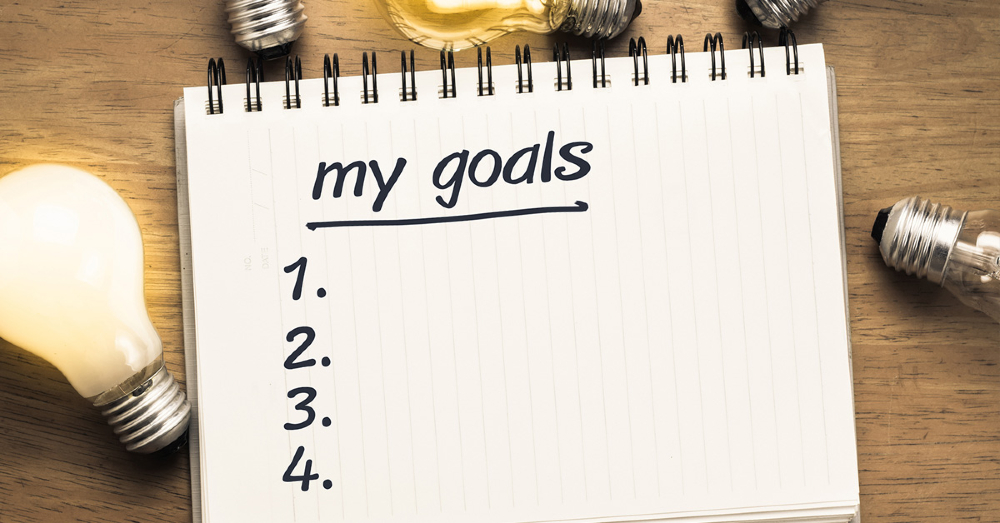
Decisions, oh, decisions. Our lives are full of situations where we'll be forced to make decisions, whether for better or worse. Having the skills to help you choose the best path/solution is one of the most important traits in life. Why? That’s because making sound and logical decisions will help contribute to both your professional and personal success. Some decisions may be harder than most, and these usually come with heavier consequences, thus making you doubt yourself. However, trying to escape from the responsibility of having to make a decision is not the right way either.
No entrepreneur or renowned leader will ever say that they’ve never made a wrong decision in their life before. In fact, there's a saying which goes, 'to err is to be human'. Instead, they'll tell you that you can choose to adopt multiple ways and techniques to improve your decision-making skills, which will ultimately make you a better person and positively impact your life in every aspect!
So, what exactly is a good decision-maker? He/she will make decisions based on logic and rationality, rather than acting on emotions and impulse. And precisely because of that, part of their decision-making process involves doing research and understanding the consequences of the choices made. By doing so, they know what’s best for them, and will not let personal biases get in their way.
Open-mindedness is one of the common traits that all good decision-makers have. When needed, a good decision-maker will involve others who are trustworthy, in order to rely on their wisdom and opinions in making the right choices. Sometimes, you make decisions not only for yourself, but for your career as well as on behalf of your company and colleagues. Now, imagine what would happen if you didn't think things thoroughly, and made one wrong move that would have dire effects on everyone involved!
Like it or not, we'll always have to make lots of decisions in life, especially as we grow older and have more responsibilities at work or home. It's common for us to thus feel overwhelmed, stressed, and confused when it comes to such situations. Because of these emotions, we often become more indecisive as the situation gets worse, and the long-term impact is that it may cause us to lose confidence in ourselves.
Indecision in life may negatively impact how we feel about ourselves, so it’s always important to take note of the strategies and techniques in making good decisions during these challenging times. As such, honing skills to help you analyse a situation quickly and competently will allow you to choose the paths that will ultimately lead to the best possible outcomes.

It’s always good to know your own goals before you start strategising in making an effective decision. Understanding why you’re making that particular decision, what purpose would it serve, and how it may affect the problem at hand will undoubtedly help you to make better decisions. In this way, you'll get to stay focused on what’s important when deciding on the path to take.
It’s always good to gather information that's directly related to the problem before deciding on a solution. Doing so helps you better understand what needs to be done, as well as generate possible ideas and outcomes of the decisions you’re about to make.
While doing as much research as possible sounds like it should be enough for you to make a good decision, it really isn't! This is because it's all just raw data, so another thing to consider after you’ve gathered information is to seek the opinions of people you trust. Be it a friend, family, or experts and professionals, these are the people who can assist you in coming up with better solutions.
The more choices you have, the more likely you’ll make a bad call. Your mind might be bogged down by all the information and choices in hand. So, it's time to carefully go through your list of potential decisions, and whittle it down to just a handful. It would help if you also tried speaking to others about your decision-making process. They might be able to offer fresh perspectives, and open up alternative paths that you’ve never considered.
One of the best things you can do before making a final decision is to consider the consequences of each and every choice. List down all the pros and cons of every option, and try to draw up a quick list of every benefit and drawback the decision could have. Sometimes, doing that helps you to realise which decisions are better than others.
Of course, having as many choices as possible in the early stages of your decision-making process is helpful. But as we mentioned above, having too many of them often leads to confusion. Eliminating as much noise (read: distracting and clashing options) as possible throughout your decision-making process helps reduce the feeling of confusion and being overwhelmed. Leaving only the important ones gives you a better idea of the outcome that you want.

We all know that rushed decisions will usually turn out to be the bad ones. When you decide on your choices too quickly, more often than not, you’re just acting upon impulses. It’s essential for you to take the time (where possible) to analyse every decision before choosing one based on natural inclinations.
But what if someone wants a quicker answer? You don’t have that much time to think! Well, there’s always the possibility of you asking for more time to research and reflect on the info gathered before making the decision. Try asking yourself pertinent questions and doing a comparison for the decisions you’re about to make. Doing so will often eliminate the less ideal options making it easier for you to decide.
We’re bound to make wrong decisions in life sometimes, which may have led to an undesirable outcome. Instead of getting discouraged, you should know that these wrong decisions are the ones that help you to make better decisions in the future because of the lessons that you inevitably have to learn. It also enables you to identify the areas of improvement, and figure out how you could achieve a better outcome next time.
Every decision you make comes with a risk. Even those which you’re already familiar with making! This is because there’s a high chance that you’ve grown accustomed to certain habits that cause you to make these poor decisions. You often don’t need to think much when you’re about to make these decisions, and precisely because of that, it might bring you down the wrong path. For example, you're so used to sneakily playing mobile phone games everyday at work that you no longer think about it, and just do it. However, one day a HR personnel catches you in the act and you're given a warning letter due to behavioural issues, and you realise that you made a bad call.
When you’re faced with a difficult decision, sometimes framing your problem in a different way will help. A slight change in your thinking can significantly affect how you perceive the issues. Hearing “80% of people who undergo this professional certification will pass” is better than hearing “20% of people who undergo this professional certification will fail”. The facts are the same, but the latter term is usually perceived to have a greater risk.
When you have to deal with tough decisions, you might overthink the consequences of each of those choices. However, overthinking your choices might ruin your ability to make the right decisions. You'll probably be overwhelmed by your thoughts if you keep thinking about the pros and cons for too long. Where possible, consider sleeping on your problem and let your brain work through it as you sleep. The correct answer might just come popping in during the night!

We believe that making the wrong decisions is better than not making any decision! Making bad or wrong decisions show us that there's still room for improvement. When your choices don’t turn out as you expect them to, then it’s time to reflect and ask yourself what went wrong. It’s always good to try and find out what lessons you can glean from the choices you’ve made, but remember not to dwell on your mistakes for too long. It might just harm your mental health.
It's okay to admit that we’ve all got shortcomings of our own. Sometimes we’re just biased in some ways, and when it comes to listening, most of us prefer to do things the easy way instead of the hard way. Scientists call this phenomenon the heuristic experience (i.e., mental shortcuts that allow people to solve problems and make judgments quickly and efficiently). While these mental shortcuts save you a lot of time in making the little decisions in your life, they might cause you to walk on the wrong path in the long run. Acknowledging this shortcoming of ours may help us be more objective over time.
Once we’ve decided on something, we’re most likely going to cling to that decision. Such is the nature of humans. Psychologists referred to this as 'belief perseverance'. Admitting that there are better options out there proved that our decisions are wrong or are less accurate. Hence, there's a good chance that we will develop a certain degree of perseverance, so much so that we believe that our decisions are the only right choices. The best way to make sure that our decisions are correct is to argue with the complete opposite decisions.
In reality, there are more things for you to consider when it comes to making decisions, such as seeking out learning opportunities to hone your skills. For example, you can opt to work with an expert career coach or sign up for a certified decision-making course (yes, there's such a thing!) that'll guide you better.
It doesn't matter if these decisions require very little or a lot of effort, we’re constantly making decisions throughout our daily lives. So, remember to always think things through, and do your best to improve your skills as a decision-maker. We promise you that your life will change when you start choosing the right paths that bring better outcomes.